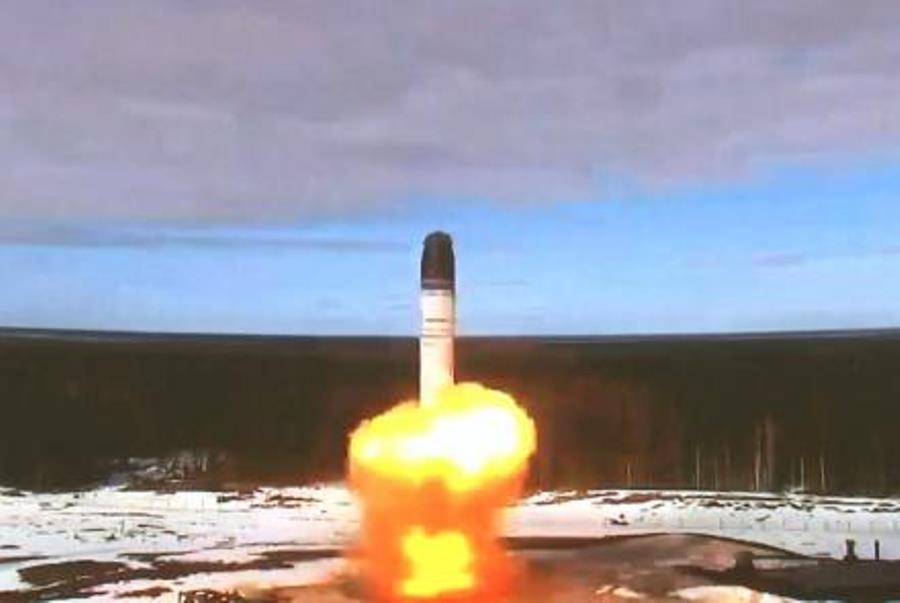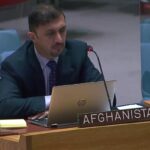(Reuters) – In a show of strength two months into its assault on Ukraine, Russia test-launched a new nuclear-capable intercontinental ballistic missile which President Vladimir Putin said on Wednesday would make Moscow’s enemies stop and think.
Putin was shown on TV being told by the military that the long-awaited Sarmat missile had been test-launched for the first time from Plesetsk in northwest Russia and hit targets in the Kamchatka peninsula, nearly 6,000 km (3,700 miles) away.
The test of the Sarmat, under development for years, did not surprise the West, but came at a moment of extreme geopolitical tension. Russia has yet to capture any major cities since it sent tens of thousands of troops into Ukraine on Feb. 24.
Ukraine’s defence ministry was not immediately available for comment.
“The new complex has the highest tactical and technical characteristics and is capable of overcoming all modern means of anti-missile defence. It has no analogues in the world and won’t have for a long time to come,” Putin said.
“This truly unique weapon will strengthen the combat potential of our armed forces, reliably ensure Russia’s security from external threats and provide food for thought for those who, in the heat of frenzied aggressive rhetoric, try to threaten our country.”
Announcing the invasion eight weeks ago, Putin made a pointed reference to Russia’s nuclear forces and warned the West that any attempt to get in its way “will lead you to such consequences that you have never encountered in your history.”
Days later, he ordered Russia’s nuclear forces to be put on high alert. “The prospect of nuclear conflict, once unthinkable, is now back within the realm of possibility,” United Nations Secretary-General Antonio Guterres said last month.
Russia’s defence ministry said on Wednesday the Sarmat was fired from a silo launcher at 1512 Moscow time (1212 GMT).
Russia’s nuclear forces will start taking delivery of the new missile “in the autumn of this year” once testing is complete, Tass quoted Dmitry Rogozin, head of the Roscosmos space agency, as saying on Wednesday.













